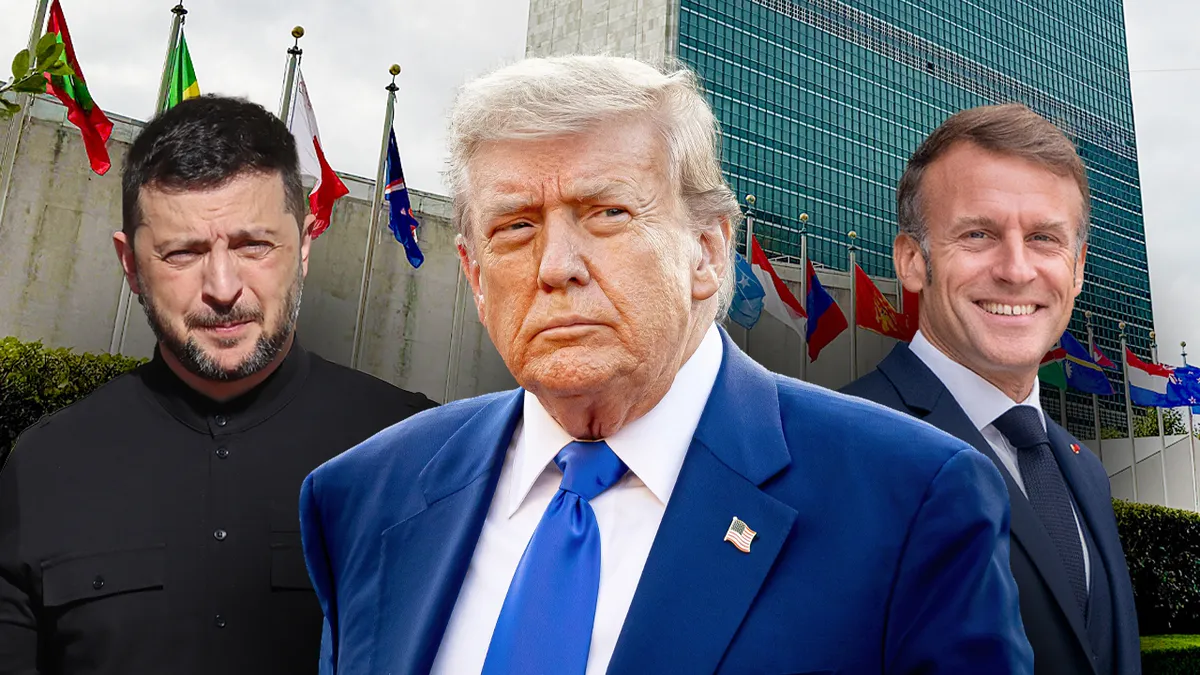
Former President Donald Trump expressed his belief that Ukraine, with the support of the European Union, has the potential to reclaim all of its territory amid the ongoing conflict with Russia. In a post on Truth Social on Tuesday, Trump stated, “After getting to know and fully understand the Ukraine/Russia military and economic situation, and after seeing the economic troubles it is causing Russia, I think Ukraine, with the support of the European Union, is in a position to fight and WIN all of Ukraine back in its original form.”
Trump emphasized the need for time, patience, and financial backing from Europe, particularly through NATO, to restore the original borders from which the conflict began. He questioned the effectiveness of Russia’s military strategy, claiming, “Why not? Russia has been fighting aimlessly for three and a half years a war that should have taken a real military power less than a week to win.” He further criticized Russia, saying it is being perceived as a “paper tiger” due to its prolonged struggles in the war.
French President Emmanuel Macron addressed world leaders at the United Nations, advocating for a revival of “effective multilateralism.” He warned that only collective action can confront pressing global issues such as nuclear proliferation, climate change, and humanitarian crises. In his speech, Macron highlighted the importance of unity among nations, stating that the failure of the UN arises not from the institution itself but from powerful states obstructing progress.
He called for a recommitment to the founding principles of the UN, saying, “We have one responsibility. That is to act together and build this multilateralism once again with the same faith, with the same resolve as the founding fathers of this Assembly.”
In another significant address, President Macron issued a strong warning regarding Iran’s nuclear ambitions, labeling the program as a destabilizing threat that could lead to renewed international sanctions. He reported that France, Germany, and the U.K. have already activated a mechanism to reinstate penalties in response to Tehran’s non-compliance. Macron stressed that Iran must grant full access to the International Atomic Energy Agency (IAEA) and either demonstrate accountability or face consequences.
“The next steps to come will be decisive,” Macron declared, emphasizing the need for Iran to revert to the path of peace.
During his address to the UN, President Trump forcefully rejected the notion of “destructive globalism,” urging nations to defend their borders and unite against threats such as terrorism, mass migration, and cultural dilution. Trump reiterated his administration’s record on ending wars and highlighted the importance of national sovereignty. He criticized the UN for its inaction and accused it of enabling harmful globalist agendas.
“The entire globalist concept of asking successful, industrialized nations to inflict pain on themselves must be rejected completely and totally,” Trump stated. He insisted that true peace is achieved by saving lives rather than pursuing international accolades.
Trump also reignited his feud with London Mayor Sadiq Khan, accusing him of pushing the city toward sharia law during his UN address. This statement drew swift backlash from UK politicians, with some criticizing Trump for spreading “rampant Islamophobia.” Khan has previously addressed issues surrounding sharia law, emphasizing the need for advocates to justify its implementation in a diverse society.
South African President Cyril Ramaphosa criticized the UN Security Council as unjust and called for reforms to ensure permanent representation for Africa and South America. He stated that the Security Council is failing in its duty to maintain international peace, citing the exclusion of Africa, home to 1.4 billion people, from permanent seats as unjust.
“We can no longer accept that a large portion of the world’s population is not represented in the United Nations Security Council,” Ramaphosa declared.
President Trump convened a crucial meeting with Arab leaders during the UNGA, focusing on efforts to secure the release of captives held in Israel. He expressed optimism about the discussions and described the meeting as “my most important meeting.”
Following a bizarre incident where an escalator at the UN stopped as Trump and First Lady Melania Trump stepped onto it, the White House demanded an immediate investigation. Press Secretary Karoline Leavitt insisted that anyone responsible for the malfunction should be held accountable.
Trump announced plans to discuss with Hungarian Prime Minister Viktor Orbán the need to halt Russian oil imports. Despite Trump’s repeated calls for NATO nations to sever ties with Moscow, Hungary has continued to rely heavily on Russian energy.
The United Nations Relief and Works Agency for Palestine Refugees in the Near East (UNRWA) has come under intense scrutiny after recent attacks by Hamas on Israel. Allegations of anti-Israel bias in educational materials and reports of UNRWA employees participating in the attacks have led several nations, including the U.S., to reconsider their funding.
Trump’s speeches at the UNGA have consistently deviated from the traditional diplomatic tone, often emphasizing themes of sovereignty and nationalism. His addresses have included stark warnings to adversaries and calls for stronger accountability in international relations.
Trump reiterated his stance that NATO countries should be prepared to shoot down Russian aircraft that violate their airspace, reinforcing his commitment to ensuring the security of allied nations amid ongoing tensions with Russia.
During his UNGA address, Trump called for the immediate release of hostages taken by Hamas, emphasizing that the attacks on October 7 cannot be overlooked. He urged for swift negotiations to secure peace and restore security in the region.
The discussions and addresses during the 80th UNGA highlight significant global challenges, including the ongoing conflicts in Ukraine and the Middle East. As world leaders gather to address pressing issues, the outcomes of these discussions will shape international relations and policies in the years to come.